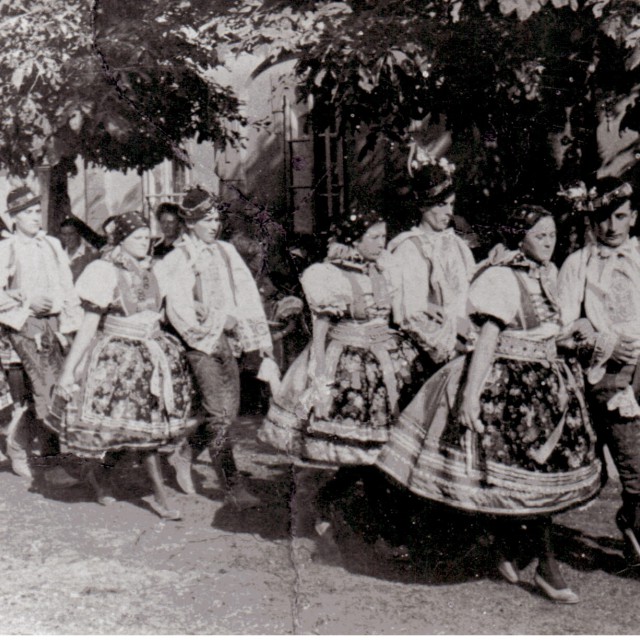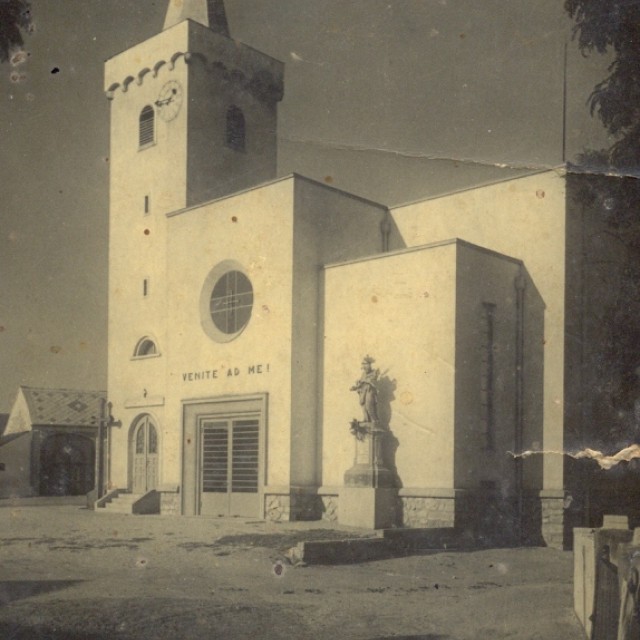Croatian Kiritof
The traditional Croatian feasts, kiritofs, were known far and wide. For three days the village would swirl with the traditional colorful folk costumes, music and singing. Everyone was welcome - and everyone also liked to come. The tradition of the feasts was interrupted for many years in 1948. Magdaléna Czehowská recalls the last kiritof: “In 1947, my father died in May. That same year, Joza Šuljera approached me and asked if I wanted to be his stárka (partner) for the feasts. My mother told him that she couldn’t promise it to him, because my father died. That year there was little wine. The hail storms had devastated the orchards. But we had enough wine because nobody was drinking it. My grandmother sent me to go and sell the wine but in the meantime Joza just came around if I could go with him as his stárka. My mother said we'd have to ask grandma and that we could not promise anything. Grandma said: ‘just let her go, we will have a sorrow, but we will also have joy’. At that time were nine of us pairs. Everyone had to have a liter of wine, we drank some of it outside the house, you had to offer something to the people, so it was enough.” The symbol of Kiritof is a goat. "The first Stárka had to feed the goat for at least three weeks. Then the goat had a tarp and he was carried by uncle Jan Marx. After hodky, they made goulash from that goat. I didn’t want to eat it, so I went to bed. But Josef Šuljera, Slunský came to me and said ‘you can’t sleep, you have to go there. Without you it’s not possible!’ So I got up and went together with them to the celebration. The goulash was eaten, we entertained the others who were there.” The tradition of the kiritof was restored after 1989 and now the kiritof is held every first Sunday of September, and the Jevišovka is again clad in color and lives with music and dancing.
Hodnocení
Hodnotilo 0 lidí
Routes
Not a part of any route.
Comments
No comments yet.






